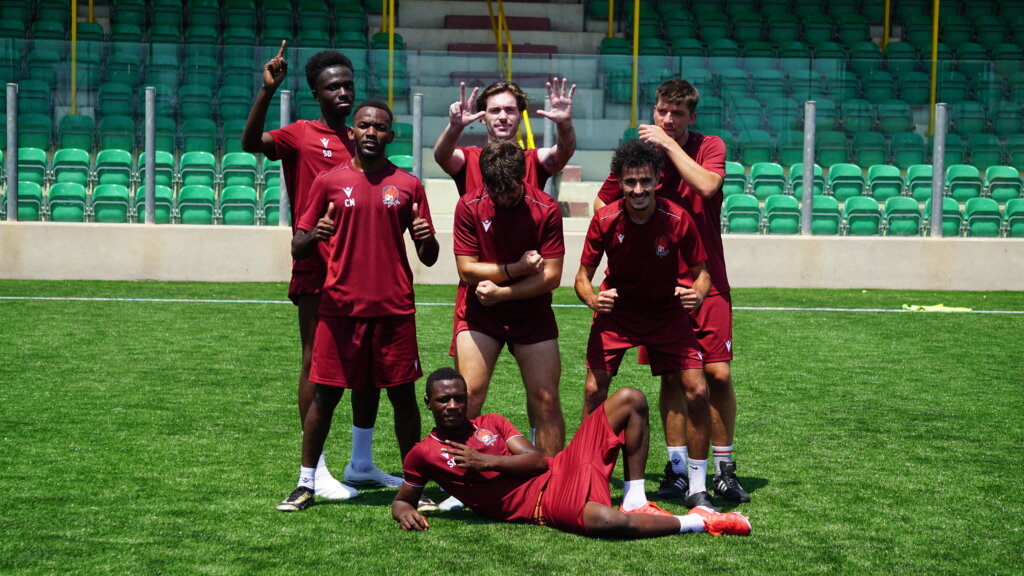Summary
Joining a football training centre abroad is a monumental opportunity, the culmination of years of dedication and talent.
It is a decisive step towards a career, but this transition is accompanied by its own set of challenges outside the field.
Adaptation to a new country, culture and living environment while maintaining high-level performance requires careful preparation and discipline.
This guide provides practical advice to help young footballers navigate this new phase of their lives.
We will deal with key aspects such as finding adequate housing, maintaining a balanced diet and preserving personal well-being, to give it the tools that are successful on the ground.
Find adequate housing: Its foundation for success
His place of life is more than a place to sleep; it is his sanctuary, where he rests, recovers and recharges. A bad choice of accommodation can have a direct impact on your sleep, stress levels and therefore on your sports performance.
Common housing options
Most academies offer several solutions for their players. It is essential to evaluate each option according to your personal needs.
- Training centre residences: This is often the most practical option. Living on campus or very nearby removes transport concerns and places you at the heart of the action. You will share spaces with your teammates, which can strengthen camaraderie and ease integration. However, it may also mean less privacy and a more limited immersion in the local culture.
- Host families: Staying with a local family offers full cultural immersion. It is an excellent opportunity to practise the language, discover local customs, and benefit from a reassuring family environment. Make sure the family understands the demands of your diet and training schedule.
- Independent or shared apartments: This option offers maximum autonomy. It allows you to manage your own schedule and personal space. However, it also involves greater responsibilities, such as handling bills, shopping, and upkeep. For a young player, this can be an additional source of stress.
Key factors to consider
Before making a decision, look at these elements for an informed decision:
- Proximity to the training centre: A short commute is essential to optimise your rest and recovery. Long and tiring journeys can drain your energy.
- Access to amenities: Check the proximity of supermarkets, pharmacies, and public transport. Easy access to these services will greatly simplify your daily life.
- Environment and safety: Is the neighbourhood calm and safe? A peaceful environment is essential for quality sleep, a cornerstone of athletic performance.
Cost and budget: Assess the total cost, including rent, utilities, and additional fees. Make sure it fits the budget agreed with your family or agents.
Nutrition: Fuel from your performance
As an elite athlete, your body is your main tool for the job. Adequate nutrition is not an option, but a need. It directly influences your energy, resistance, recovery speed and ability to prevent injuries.
Build a balanced diet
Adapting your diet in a new country can be a challenge, with different food products and habits. Working with the club nutritionists to develop an appropriate plan.
- Essential macronutrients:
- Complex carbohydrates: Your main source of energy. Include foods such as wholemeal pasta, brown rice, quinoa, and sweet potatoes to fuel your training sessions and matches.
- Lean proteins: Crucial for muscle repair and building. Favour chicken, turkey, fish, eggs, and legumes.
- Healthy fats: Important for hormonal functions and reducing inflammation. Include avocados, nuts, seeds, and olive oil.
- Hydration: Even mild dehydration can cause a significant drop in performance. Drink water throughout the day, not only during physical effort. Electrolyte drinks can be helpful after intense sessions to replenish lost minerals.
He handles the meals every day
The organization is the key to maintaining a healthy diet despite a busy schedule.
- Plan your meals: Take an hour each week to plan your meals and do your shopping. This will help you avoid last-minute food choices, which are often less healthy.
- Learn simple recipes: Mastering a few easy, quick and nutritious recipes will make you more independent. Dishes such as pasta with grilled chicken, vegetable omelettes, or mixed salads are excellent options.
Use the club’s services: If your academy has a cafeteria, make the most of it. Meals are usually designed by professionals to meet the needs of athletes.
Make sure you get your mental and social well-being
The pressure to realize, the distance from family and friends, and adaptation to a new culture can weigh a lot in their morals. Caring for your mental health is as important as taking care of your body.
Fight isolation and nostalgia
It is perfectly normal to feel alone or feel the lack of your country of origin. Strategies to remain connected are essential.
- Stay in touch: Schedule regular video calls with your family and friends. Sharing your experiences, whether good or bad, will help you feel supported.
- Build bonds with your teammates: You all share a common goal. Arrange activities outside the pitch, such as going to the cinema, meals, or video game sessions. These bonds will strengthen team cohesion and provide you with a local support network.
- Explore your new surroundings: Don’t stay confined to the training centre. Take time to visit the city, discover its parks, museums, and cafés. Getting to know and appreciate your new place of living will make your adaptation easier.

Manage stress and pressure
Competition is intense in a training centre. The pressure to be demonstrated is constant.
- Establish a routine: A structured routine for your training, meals, and sleep can provide a sense of control and stability, helping to reduce anxiety.
- Practise relaxation: Incorporate techniques such as meditation, deep breathing, or yoga into your daily routine. Just a few minutes a day can help calm your mind and improve your focus.
- Set realistic goals: Focus on process goals (e.g. improving your weaker foot, completing 80% of your passes) rather than result goals (e.g. scoring in every match). This helps you concentrate on what you can control.
- Do not hesitate to ask for help: Academies often have sports psychologists or counsellors. Making use of these resources is not a sign of weakness, but a sign of maturity and commitment to your overall well-being.
In conclusion, the transition to a training centre abroad is a demanding but incredibly rewarding adventure.
By proactively administering their housing, nutrition and mental well-being, it builds a solid foundation that will not only survive but prosper.
This outdoor preparation is the investment that will trigger all its potential when it comes to the lawn.

